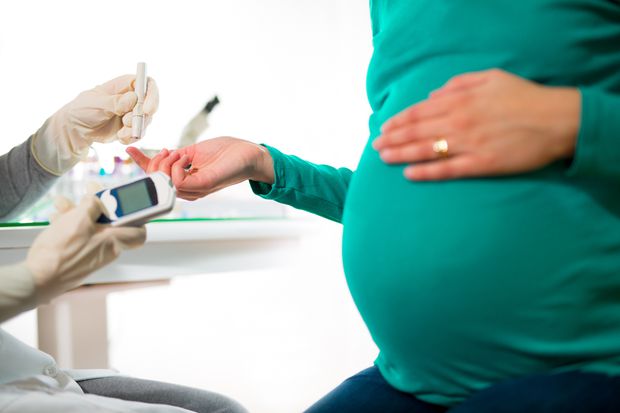Pregnant Women With Elevated Fasting Blood Sugar Most Likely To Face Complications And Harmful Outcomes For Themselves And Their Babies
Source : Thailand Medical News Feb 04, 2020 6 years, 1 week, 2 days, 1 hour, 27 minutes ago
According to a new study by a University of Alberta researchers, pregnant women diagnosed with
diabetes who have elevated fasting (pre-meal) blood sugar levels are more likely to face complications than those who have only elevated post-meal glucose levels.

Cardiology Professor Dr Padma Kaul, who is also an adjunct professor in the School of Public Health told
Thailand Medical News, "The women who had elevated fasting glucose, adjusted for all other risk factors, were almost three times more likely to have a big baby than women who had normal fasting glucose levels but elevated postprandial sugar levels."
It was also found that the women with high fasting blood sugars were also found to be at 1.5 times higher risk for high blood pressure during pregnancy, and had a higher likelihood of needing an induced labour, having a caesarean section or having a preterm birth.
Dr Kaul said large babies are at risk for complications during birth and obesity later in life, and high blood pressure during pregnancy can place extra stress on the heart and kidneys of a mother.
The medical researchers found that the adverse outcomes for women with high fasting blood sugars persisted even when the women were given
diabetes drug treatments such as insulin or
metformin.
Dr Kaul added, "Why the women who have fasting glucose are less responsive to treatment is a very important question. It may indicate some other mechanism that requires further study."
Dr Kaul said further research is needed to determine whether earlier or more aggressive
diabetes treatment for women with high fasting glucose levels would reduce or prevent the adverse outcomes.
The medical researchers examined health records for more than 250,000 pregnancies in Alberta between 2008 and 2014. Nearly 13,000 of the mothers were diagnosed with gestational
diabetes. Four thousand had elevated fasting blood sugars of 5.3 mmol/L or higher, whereas the others had normal blood sugars while fasting but showed elevated levels following an oral glucose tolerance test.
Dr Kaul explained that nearly all pregnant women in Alberta undergo a two-step screening process for gestational
diabetes. The first test, done between 20 and 24 weeks of gestation, is a 50 gram oral glucose tolerance test, taken at any time of the day. If the woman's blood sugar is found to be higher than 7.8 mmol/L one hour later, she is sent for the second test, which involves giving a blood sample after 12 hours of fasting, usually first thing in the morning, then ingesting 75 grams of glucose and giving more samples one and two hours later.
Dr Kaul said that about 15 per cent of pregnant women in Alberta receive the second test and about one-third of those tested are diagnosed with ge
stational
diabetes. As trends in older maternal age and higher weight in pregnancy continue, rates of gestational
diabetes are also on the rise.
For more articles about
diabetes, please go to :
https://www.thailandmedical.news/articles/diabetes
Reference
: E. A. Ryan et al, Elevated fasting vs post‐load glucose levels and pregnancy outcomes in gestational diabetes: a population‐based study,
Diabetic Medicine (2019). DOI: 10.1111/dme.14173
